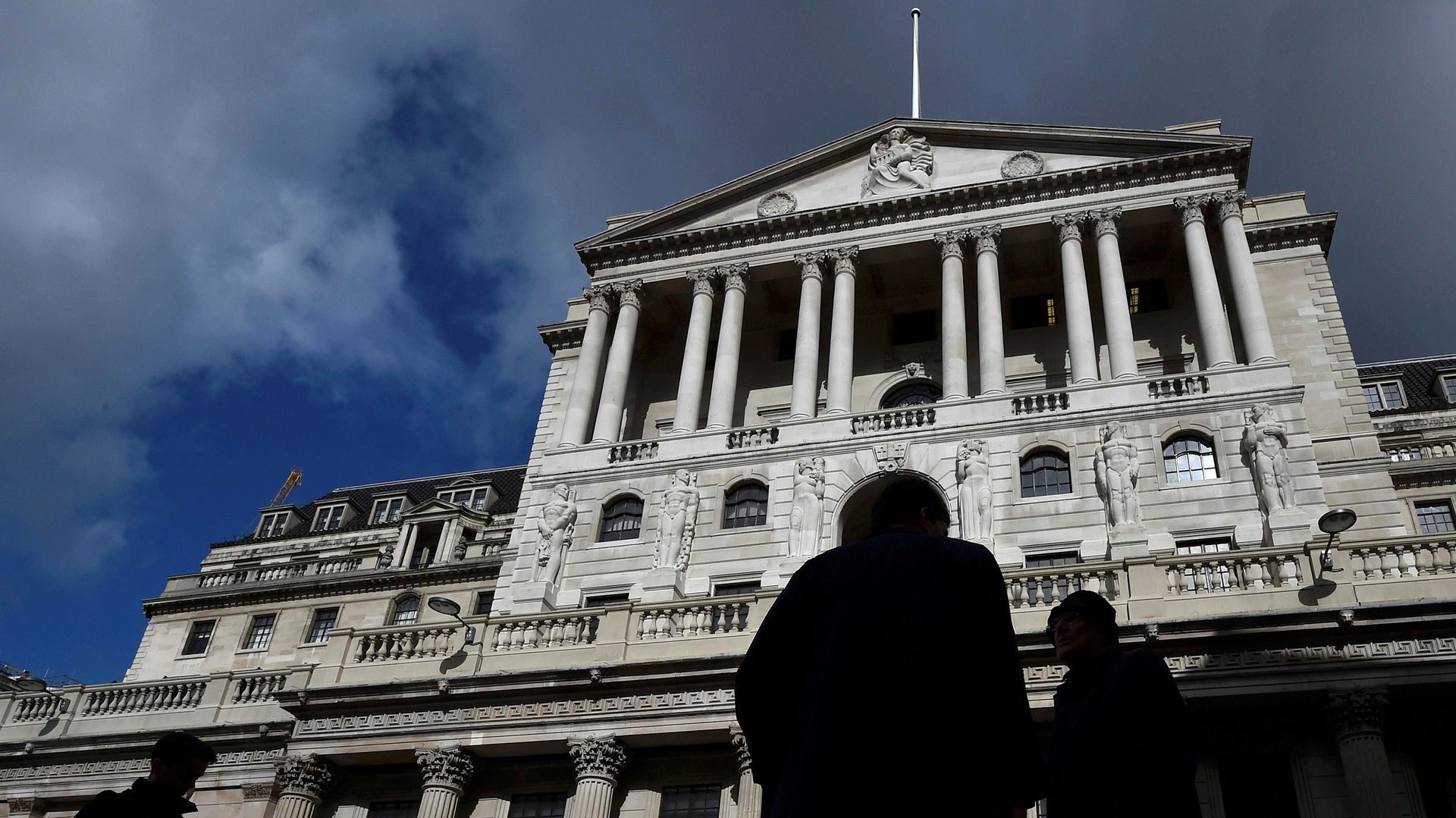Brexit shows central banks can’t go it alone–governments have to step up
The UK vote to leave the EU is already causing market volatility. Central banks are immediately reassuring markets that they will do their job. Their job used to be just managing monetary policy, aimed at an inflation and/or full employment target. Now central banks are expected to maintain financial stability when the instability is caused by events far beyond their control.


The UK vote to leave the EU is already causing market volatility. Central banks are immediately reassuring markets that they will do their job. Their job used to be just managing monetary policy, aimed at an inflation and/or full employment target. Now central banks are expected to maintain financial stability when the instability is caused by events far beyond their control.
The Bank of England’s Mark Carney issued an immediate statement to reassure British financial markets, but the pound nonetheless took a beating in foreign exchange markets. The other side of that is further appreciation of the yen, making it harder for the Bank of Japan to meet its inflation target as well as further appreciation of the dollar, making it harder for the Federal Reserve to unwind its monetary stimulus. The flight to safety has brought market interest rates on government bonds to new lows, hurting savers, pension funds and insurers.
Where are all our governments in managing economic challenges? What happened to fiscal policy or legislative actions to make our economies more flexible and more productive? Do legislatures around the world understand that their inaction has ceded responsibility to central banks, responsibility to keep economies going using the limited tools within their power? At the same time, central banks face criticism often from those same legislatures or governments for taking extreme actions to maintain economic growth and job creation.
It’s time for governments, legislatures and leaders around the world to step up and reassume responsibility for strengthening their economics, making them more productive through investment in infrastructure and human capital, making them more flexible so businesses can invest and hire. Central banks will, of course, continue to act under their mandates, but more normal monetary policy actions would result and would complement fiscal and other economic reforms, instead of carrying the full burden as monetary policy does now.
Sadly, I do not expect that to happen. So this is a warning to governments around the world. Your central banks will continue to do the best they can under these volatile conditions. Do not criticize them; do not take away their powers. They must to be able to act because all of you collectively will not fulfill your responsibilities to implement adequate economic policies.